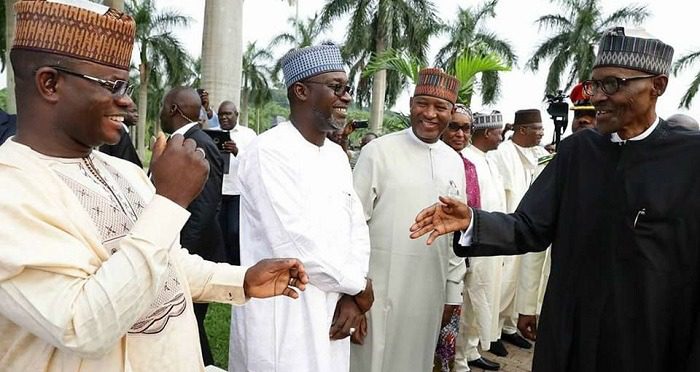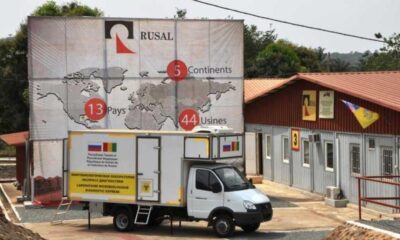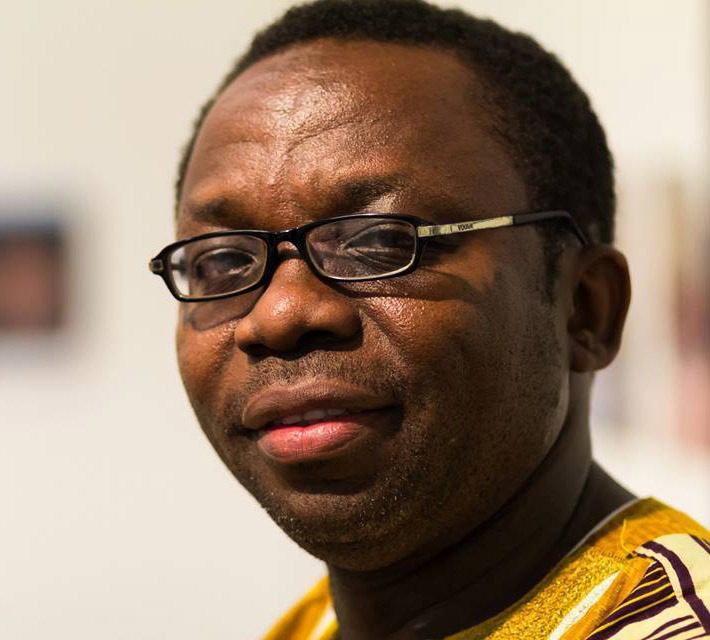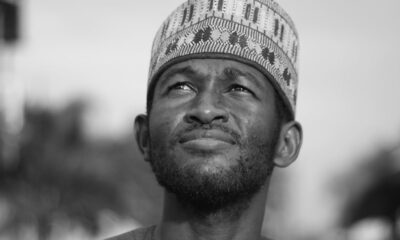Political Issues
Hypocrisy, the recipe for chaos -By Sonala Olumhense


On the morning of August 23, one month ago, Nigeria’s Vice-President Yemi Osinbajo tweeted: “Today, I presented the Presidential Investigation Panel Report on the allegations against suspended SGF and DG NIA to President @MBuhari.”
The suspended SGF (Secretary to the Government of the Federation) to whom he alluded is Babachir Lawal; and the suspended Director-General of the Nigerian Intelligence Agency (NIA), his co-traveller, Ayo Oke.
They were suspended from their jobs in April, Mr. Lawal for allegedly awarding spurious contracts under the auspices of the Presidential Initiative on the North East (PINE) to companies which trafficked the funds back to him. The funds had been intended for the welfare of the Internally Displaced Persons (IDPs) in the North-East. Mr. Oke, on the other hand, had become internationally-infamous following the discovery by the Economic and Financial Crimes Commission (EFCC) in a private residential Lagos flat, of mind-boggling sums in various currencies he said somehow belonged to his agency.
Vice-President Osinbajo’s tweet came four months after President Muhammadu Buhari finally did something he has appeared very reluctant to do: be seen to be inflicting the whip of his anti-corruption rhetoric on actual persons. In principle, he prefers the broad strokes of generalisations and broad strokes.
That was in mid-April, when the circling vultures included the Senate, perhaps the most morally-ambivalent legislature known to democracy, ancient and modern. The Upper House had indicted Mr. Lawal in the PINE scandal.
It seemed that Buhari, always in principle eager to pick up the verbal hammer as soon as he hears the word, corruption, but oddly somewhat shy when he looks into its eyes, would do something to substantiate his objection to the open exploitation of the poor.
And then, on April 19, he sent Mr. Lawal on suspension along with Mr. Oke, announcing a three-man panel, to be headed by the Vice-President, to probe each man, and to submit its report to him within 14 days.
Two and a half weeks later, on May 7, President Buhari left for London for medical treatment, less than two months after a similar trip on which he had spent over 50 days in the United Kingdom.
It was unclear how long he would be away, but eventually, he spent 104 days. During the period, neither Mr. Lawal nor Mr. Oke held his office, but none of them suffered any further embarrassment, let alone punishment. Mr. Osinbajo acted as President, but he did not take any action on the file, either.
And so, last month, he finally rid himself of the report, and sent out that tweet to confirm it. As is usual with a government of loud proclamations, we are still hearing the loud bells of that report passing from one set of hands to another, with no action of any kind being announced.
Buhari’s silence confirms what critics and attentive persons already knew by April 19 when the Osinbajo Panel was announced: corruption was bidding its time, holding things in place, trying to outsmart the Nigerian.
And now, over five months later, with Buhari back in London last week, the report under his pillow and the world still laughing at Nigeria over Mr. Oke’s Ikoyi forex hideout, still not one word.
He has now taken over another 30 days to ignore it, reminding the world that the problem with the anti-corruption offensive in Nigeria has always been its lack of a soul.
Even when identified or indicted, sabotage and subterfuge in high places is never roundly, openly and categorically punished. Instead, we come up with new songs and dimensions; we set up a camp fire and dance around it; we deploy new fire-eating oratory. We delay. We defer.
Remember: in 2006, indicted for false declaration of assets by a Joint Task Force (JTF) on corruption set up by President Olusegun Obasanjo, then Bayelsa State Governor Goodluck Jonathan did not go to jail. Instead, Obasanjo anointed him VP the following year.
In 2012, Mr. Jonathan did not send to jail for the crimes that forced her out as minister, his friend, Stella Oduah, and that enabled her to become a senator. And of course, Jonathan pardoned his friend and predecessor as Bayelsa governor, Diepreye Alamieyeseigha, who had been convicted of widespread stealing.
It is these double standards that are hurting Nigeria’s ability to move forward. In Buhari’s case, his limitations can no longer hide under his words. Last week, for instance, at the 2017 Annual National Management Conference of the Nigerian Institute of Management in Abuja, he reiterated he will not stop tackling corruption until it is “completely exterminated” in Nigeria.
But corruption is not a rodent you chase around the house until you catch or kill it, and talking about it does not hurt it. To succeed in this battle, a leader needs a clear strategy, and to be accountable. That transparent strategy should be seen in action, not overheard in words.
In place of this we have a situation where the Buhari government continuously contradicts its proclamations. Among others:
- The permanent secretaries who padded the 2016 budget were never punished
- The officials who stole and sent to be sold in markets the 200 million tonnes of dates sent this year by the Kingdom of Saudi Arabia to Nigeria’s IDPs in the North-East as a Ramadan gift were never identified, let alone punished
- The officials last year reported by the Global Fund to have looted funds it sent to Nigeria to combat HIV & AIDS, tuberculosis and malaria were never identified or punished, despite three separate investigations launched by the Buhari government
- The government has refused to publish the comprehensive and systematic list of looters and their loot as ordered by the courts.
Add to these the Osinbajo panel report, which is now gathering dust with the best of them—such as the Halliburton reports and the oil sector reports—and it becomes clear why Buhari is sounding increasingly hollow in his mission claims. At the United Nations last Tuesday, the Nigeria leader extended the concern about his philosophy when he spoke about crises around the world, noting correctly that their primary victims are the people, and the most vulnerable being women and children.
He then urged the world to “be mindful, and focus on the widening inequalities within societies, and the gap between the rich and the poor nations.”
His conclusion: “These inequalities and gaps are part of the underlining root causes of competition for resources, frustration and anger leading to spiraling instability.”
This is a wonderful world view to express, but it is pointless to aim at other cultures, peoples and governments when the opportunity to address history is firmly in your own hands to do the right thing, the reward being to save millions of the poor and powerless, and averting chaos.
But if it takes six months to dance around the case of a top government official who was officially investigated by the Vice-President, and that efforts yield only more speeches, that is insincerity. And we must diagnose hypocrisy as the ultimate recipe for frustration, anger and instability.
















